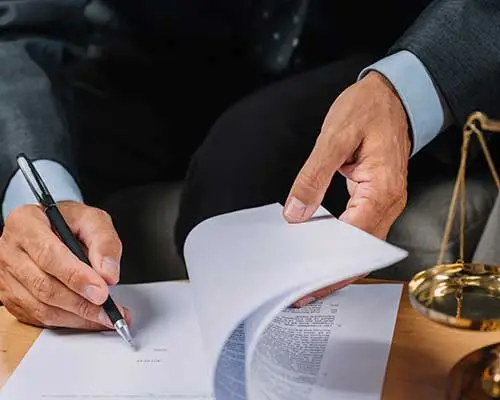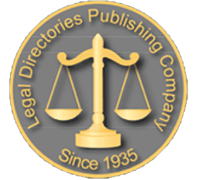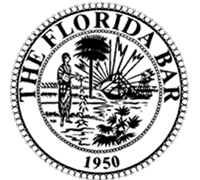How to Hire a Business Fraud Lawyer: A Checklist
When something feels wrong in your business, you can’t afford to ignore it. Maybe it’s a financial report that doesn’t add up or a partner’s sudden secrecy. These gut feelings are often the first sign of a serious problem. Ignoring them can lead to devastating financial losses and damage to your company’s reputation. This is the critical moment when you need to take decisive action. The first step isn’t to launch your own investigation but to get professional guidance. The decision to hire a business fraud lawyer provides you with an expert who can discreetly uncover the facts, protect your legal rights, and create a clear strategy to address the situation head-on.
Key Takeaways
- Hire a Specialist Immediately: When dealing with business fraud, time is critical. A specialized attorney can immediately start investigating, protecting your assets, and building a legal strategy, whether you’re the one making an accusation or defending against one.
- Vet Your Attorney Thoroughly: The initial consultation is your interview. Ask pointed questions about their experience with cases like yours, their proposed strategy, and their communication style. Always get a transparent, written breakdown of all fees and costs before signing anything.
- Understand the Path to Recovery: Your lawyer’s primary goal is to recover your losses through legal actions like asset freezes, civil lawsuits, or negotiated settlements. The process begins with a detailed case assessment, followed by a clear strategic plan and consistent communication to keep you informed.
What Does a Business Fraud Lawyer Do?
When you’re dealing with business fraud, it can feel like the ground is shifting beneath your feet. A business fraud lawyer is your advocate, working to stabilize the situation and protect your interests. Their role is multifaceted, combining investigation, legal strategy, and courtroom representation to address the wrongdoing and work toward a resolution. Whether you’ve been deceived by a partner or are facing accusations yourself, understanding what these specialized attorneys do is the first step toward finding a path forward. They are essential allies in untangling complex financial deceptions and fighting for a just outcome.
Common Types of Business Fraud Cases
Business fraud isn’t a single act but a category of deceptive practices. A lawyer specializing in this area handles a wide range of complex situations. This includes everything from internal issues like an employee embezzling company funds to external schemes like fraudulent misrepresentation in a contract. They also tackle sophisticated financial crimes, such as Ponzi schemes where new investors’ money is used to pay earlier investors, or insider trading, which involves using confidential information for personal gain. An experienced business litigation attorney knows how to dissect these cases and build a strategy tailored to the specific type of fraud you’re facing.
Representing You in Court
If your case goes to trial, your business fraud lawyer becomes your voice in the courtroom. They represent a variety of clients, including the company itself, individual officers, directors, or investors who have been harmed. Their job is to present the evidence they’ve gathered in a clear and compelling way, cross-examine witnesses, and make legal arguments on your behalf. This representation isn’t limited to trials; our attorneys also handle negotiations, mediations, and arbitrations. The goal is always to advocate for your best interests, whether that means fighting for a verdict in court or securing a favorable settlement outside of it.
Investigating and Gathering Evidence
Before a case ever reaches a courtroom, a significant amount of work goes into investigation. A business fraud lawyer acts like a detective, working quickly to uncover the facts. This process involves gathering crucial evidence, such as financial statements, contracts, and internal communications. They will often obtain official records and interview key witnesses to piece together what happened and expose the fraudulent activity. This meticulous evidence collection is the foundation of a strong case. It allows your attorney to understand the full scope of the fraud and build a solid strategy for moving forward.
Recovering Lost Funds and Assets
For many victims of fraud, the primary goal is to get their money back. A key function of a business fraud lawyer is to pursue the recovery of lost funds and assets. They use various legal tools to trace and reclaim what was wrongfully taken, whether it was through theft, deception, or false information. This might involve filing lawsuits to obtain judgments, placing liens on property, or negotiating settlements that include repayment. The path to recovery can be complex, but an attorney can guide you through the process and fight to make you whole again. If you need help recovering losses, it’s best to contact an attorney to discuss your options.
When Should You Hire a Business Fraud Lawyer?
Knowing when to bring in a legal professional can feel tricky. You might worry about overreacting to a suspicion or escalating a situation unnecessarily. However, when it comes to business fraud, acting quickly is one of the most important things you can do to protect your company, your reputation, and your finances. Whether you’re the one discovering potential misconduct or the one facing an accusation, the right time to call a lawyer is almost always now. An experienced attorney can provide clarity and a strategic path forward.
The decision to hire a lawyer often comes down to one of three scenarios: you’ve noticed red flags within your company, you’ve been accused of wrongdoing, or you’re caught in a financial dispute that’s too complex to handle on your own. Each situation requires a swift and measured response. Waiting can often make matters worse, allowing evidence to disappear or financial losses to grow. Getting ahead of the problem with professional guidance gives you the best chance to control the outcome.
Spotting the Warning Signs of Fraud
Fraud often starts small and can be difficult to detect, especially in businesses with fewer than 100 employees, which surprisingly tend to suffer larger median losses from fraud. You know your business best, so trust your instincts when something feels off. Common warning signs can include an employee who insists on working odd hours or refuses to take vacation, financial records that don’t add up, or a sudden, unexplained insistence on using a specific vendor. If you notice these or other irregularities, it’s time to take action. A business litigation attorney can help you conduct a proper investigation while protecting your legal rights and minimizing further damage.
When You’re Facing Accusations
Being accused of fraud can be a shocking and overwhelming experience, whether the accusation comes from a business partner, a client, or a regulatory body. Your immediate priority should be to secure legal representation. Don’t try to handle it alone or wait for the situation to resolve itself. An accusation can have serious consequences for your business and personal reputation. An experienced lawyer can step in immediately to manage communications, protect your rights, and begin building a strong defense. The sooner you have a legal advocate on your side, the better you can control the narrative and work toward a favorable outcome.
Handling Complex Financial Disputes
Sometimes, the line between a misunderstanding and deliberate fraud is blurry. You might find yourself in a complicated financial disagreement involving partnership disputes, shareholder issues, or breaches of contract. These situations can be just as damaging as outright fraud if not handled correctly. When you’re dealing with the intricacies of financial agreements and potential litigation, having a legal partner is crucial. An attorney can help you decipher complex financial data, interpret contractual obligations, and chart the best legal path forward. They can also help you implement stronger internal controls to prevent similar disputes from happening again.
How Much Does a Business Fraud Lawyer Cost?
When you’re dealing with business fraud, the last thing you want is another financial surprise. Understanding how legal fees work is the first step toward taking control of the situation. The cost of hiring a business fraud lawyer can vary significantly based on the complexity of your case, the lawyer’s experience, and the fee structure you agree upon. There isn’t a one-size-fits-all price tag, but you can get a clear picture of potential costs by understanding the common ways attorneys bill for their services.
Most law firms use one of a few standard models: hourly rates, flat fees, or contingency fees. It’s crucial to have a transparent conversation about costs during your initial consultation. A reputable attorney will be upfront about their fee structure and what you can expect to pay. This isn’t just about the lawyer’s time; there are other expenses like court fees and investigation costs that can add up. Getting a handle on these potential expenses from the start will help you budget effectively and choose the right legal partner for your business litigation needs.
Understanding Hourly Rates vs. Retainers
The most common fee structure for business fraud cases is the hourly rate. This means you pay the lawyer for every hour they spend working on your case. Rates can range from around $250 to over $800 per hour, depending on the attorney’s expertise and your location. Often, you’ll be asked to pay a retainer upfront. A retainer is not a flat fee for the whole case; it’s more like a down payment. The law firm holds this money in a trust account and deducts their hourly fees from it as they work. When the retainer funds run low, you may need to replenish them. This model ensures the lawyer is compensated for their time as the case progresses.
Exploring Flat Fees and Contingency Options
For more straightforward cases, some attorneys may offer a flat fee. This is a single, predetermined price for a specific legal service, which gives you cost certainty from the beginning. For example, a simpler fraud case might have a flat fee ranging from $5,000 to $25,000. However, for complex cases involving extensive investigations or federal charges, costs can climb much higher. Another option, mainly for those trying to recover money, is a contingency fee. Here, the lawyer’s fee is a percentage of the amount they recover for you. If you don’t win the case, you don’t pay the attorney’s fee, though you may still be responsible for other costs. It’s best to contact an attorney to see which structure fits your situation.
Budgeting for Additional Expenses
Beyond the attorney’s direct fees, your legal budget should account for other case-related expenses. These costs are necessary to build a strong case and can include court filing fees, the cost of hiring expert witnesses (like forensic accountants), private investigator fees, and administrative costs like copying and postage. Travel expenses can also come into play if your lawyer needs to travel for depositions or court appearances. A good lawyer will outline these potential “out-of-pocket” costs for you in your fee agreement. Discussing these additional expenses with your team of experienced attorneys ensures there are no surprises and helps you plan your finances accordingly.
What to Look For in a Fraud Lawyer
When you’re dealing with business fraud, you need more than just a general attorney; you need a specialist. Fraud cases are a unique beast, often involving tangled financial records, deceptive practices, and specific state and federal laws. Finding a lawyer with the right background and skills is the most important step you can take to protect your interests. Think of it like hiring a contractor—you wouldn’t ask a plumber to rewire your house. The same principle applies here. You need an expert who lives and breathes this area of law to give you the best chance at a positive outcome.
Specialized Experience and Focus
First and foremost, look for a lawyer who specializes in fraud and complex business litigation. A true fraud lawyer is a legal professional who concentrates on cases involving intentional misconduct and deceit. They understand how to follow the money, untangle confusing transactions, and build a case based on financial evidence. This isn’t something most attorneys handle daily. An experienced fraud lawyer has seen these schemes before and knows the common tactics used by perpetrators. They are familiar with the specific statutes that apply in Florida and can develop a strategy tailored to the unique details of your situation.
Essential Skills and Credentials
Beyond specialization, your lawyer needs a specific set of skills. Excellent communication is non-negotiable. They must be able to explain complicated legal and financial concepts to you in a way that makes sense and represent your case clearly and persuasively in court. Strong analytical and investigative skills are also critical. Your lawyer will need to sift through documents, emails, and financial statements to uncover key evidence. Of course, ensure any attorney you consider is a member in good standing with The Florida Bar and has the proper credentials to practice law in the state.
Evaluating Their Reputation and Track Record
A lawyer’s reputation can tell you a lot. You want an attorney known for their professional integrity and a solid track record in handling fraud cases. While past results don’t guarantee future success, they do indicate experience. Look for testimonials or case studies that show they have successfully helped clients in situations similar to yours. During your initial consultation, don’t be shy about asking about their experience with cases like yours. The attorneys at a reputable firm will be transparent about their background and how their experience can benefit you.
How Can a Lawyer Help You Recover Losses?
Discovering you’ve been a victim of business fraud is overwhelming, but your next steps are critical. A business fraud lawyer takes concrete action to help you reclaim what’s rightfully yours. From tracing stolen assets to representing you in court, their role is to manage the complex legal process so you can focus on your business. Here’s how an attorney can help you recover your losses.
Strategies for Asset and Fund Recovery
One of the first things your lawyer will do is work to locate and freeze the stolen assets. Time is critical, as fraudsters often move money quickly. Your attorney can use legal tools like restraining orders or injunctions to prevent assets from being moved or spent while the case is ongoing. They will also begin tracing funds through bank records and other financial documents. This process is essential for proving where the money went and building a strong case for its return. An experienced business litigation attorney can put the right legal measures in place to effectively pursue your stolen funds.
Pursuing Civil Litigation and Settlements
Often, recovering your losses means filing a civil lawsuit against the person or entity responsible. Your lawyer will handle this process, from drafting the initial complaint to representing you in court. The goal is to obtain a legal judgment that orders the other party to repay you. However, many fraud cases are resolved through a settlement before trial. A skilled attorney is a strong negotiator who can work to secure a favorable settlement on your behalf, which can be a faster and less costly way to recover your funds. Understanding the different legal practice areas involved, from contract law to corporate disputes, is key to a successful outcome.
Working with Law Enforcement
While your civil case focuses on financial recovery, a criminal case may also be underway. Your lawyer can act as a liaison between you and law enforcement agencies. They can organize the evidence you have and present it to prosecutors in a clear, compelling way, which strengthens the criminal case against the perpetrator. A strong criminal prosecution can lead to a court order for restitution, meaning the defendant is required to pay you back as part of their sentence. Having an attorney to guide you through this process ensures your interests are represented on all fronts and increases the chances of a favorable outcome.
How to Choose the Right Business Fraud Lawyer
Choosing a lawyer is one of the most critical decisions you’ll make for your business. This isn’t just about hiring someone with a law degree; it’s about finding a strategic partner who understands your situation and is committed to protecting your interests. The initial consultation is your opportunity to interview potential candidates and determine if they are the right fit for you and your case. Think of it as a two-way street: while they are assessing the details of your claim, you should be evaluating their experience, communication style, and transparency. A good lawyer will welcome your questions and make you feel confident in their ability to handle your case. Don’t rush the process. Taking the time to find the right legal counsel can make all the difference in the outcome and give you peace of mind knowing your business is in capable hands.
Key Questions to Ask in a Consultation
Walking into a consultation prepared with the right questions can help you cut through the noise and find the best fit. Start with their direct experience. Ask, “Have you handled business fraud cases similar to mine before, and what were the general outcomes?” This gives you a clear picture of their track record. You should also inquire about their strategy by asking, “What are the potential strengths and weaknesses of my case?” A good attorney will provide an honest, preliminary assessment. Finally, understand the logistics: “Who will be my main point of contact, and how will you keep me updated on my case’s progress?” This ensures you know what to expect moving forward. Having an attorney with a deep understanding of Florida business law is essential.
Assessing Their Communication Style
Pay close attention to how a potential lawyer communicates during your first meeting. Legal concepts can be complicated, so you need someone who can explain them clearly, without relying on confusing jargon. Do they listen attentively to your story, or do they seem rushed and dismissive? You should feel comfortable asking questions and confident that you understand their answers. A lawyer’s communication style is a strong indicator of what your working relationship will be like. You want an advocate who is responsive, patient, and keeps you informed every step of the way. Getting to know the background and approach of the firm’s attorneys can also provide insight into their professional style.
Clarifying Fees and Payment Terms
Don’t hesitate to talk about money. Understanding the full financial scope of legal representation is crucial for budgeting and avoiding future surprises. Ask for a detailed breakdown of their fee structure—whether they charge an hourly rate, a flat fee, or work on a retainer. It’s also important to ask what is included in that fee and what isn’t. Inquire about other potential costs, such as court filing fees, expert witness expenses, or administrative charges. A reputable lawyer will be transparent about their billing practices and provide you with a written fee agreement that outlines all terms clearly. To get a personalized understanding of costs, you can always schedule a consultation to discuss the specifics of your case.
What to Expect After You Hire Your Lawyer
Once you’ve signed the engagement letter, you might be wondering, “What now?” Hiring a lawyer is a big step, but it’s just the beginning. Knowing what comes next can help manage your expectations and give you a sense of control. Your attorney will guide you through every stage, which generally starts with a thorough assessment, clear communication, and a strategic plan. This partnership is built on collaboration, and your involvement is key to moving your case forward.
The Initial Case Assessment
The very first thing your lawyer will do is conduct a deep dive into your situation. This initial assessment is all about gathering facts and evidence. You’ll be asked to provide all relevant documents, like contracts, financial statements, and emails related to the suspected fraud. Your attorney will review everything to understand the full scope of the issue, identify the responsible parties, and evaluate your case’s strengths and weaknesses. This phase is crucial for building a strong legal strategy. It’s also a chance for your legal team to provide ongoing support and help you put measures in place to protect your business from future fraud.
Setting Communication Expectations
Clear communication is the backbone of a good attorney-client relationship. Early on, you and your lawyer should establish how you’ll stay in touch. Will you get weekly email updates? Will they call only with significant developments? Who is your main point of contact? Don’t be afraid to ask. An experienced business attorney will be upfront about their communication style and will work to keep you informed. Your role is to be responsive and provide requested information promptly. This open line of communication ensures you’re never left in the dark and your legal team has what it needs.
Outlining a Timeline and Next Steps
After the initial review, your lawyer will map out a strategic plan. This isn’t a vague idea; it’s a concrete outline of the next steps, which could involve sending a demand letter, filing a complaint, or beginning discovery to gather more evidence. While your attorney will provide a general timeline, remember that legal proceedings can be unpredictable. Court schedules and the opposing party’s actions can cause delays. However, your lawyer will give you a clear roadmap of the legal journey ahead, explaining each phase. This ensures you understand the process and are prepared for what’s to come.
Related Articles
- Top Orlando Business Litigation Lawyers for 2022
- How a Business Litigation Lawyer Can Help You
- Business Dispute Attorney Orlando FL | Legal Counsel, P.A.
- Home Shopping Florida Business Lawyers – Legal Counsel P.A.
Frequently Asked Questions
What’s the very first thing I should do if I suspect fraud in my business? Your first move should be to discreetly gather any documents or records related to your suspicion without altering them. This could include financial statements, emails, or contracts that seem off. The next, and most critical, step is to contact a business fraud attorney immediately. Acting quickly is essential to prevent further losses and preserve evidence. Avoid confronting the person you suspect on your own, as this can complicate the investigation and give them an opportunity to cover their tracks.
I’ve been accused of fraud, but I’m innocent. How can a lawyer help me? Being wrongly accused is an incredibly stressful situation, and a lawyer’s primary role is to protect you and your reputation. They will immediately take control of communications to prevent you from saying something that could be misinterpreted. Your attorney will then conduct their own investigation to gather evidence that proves your innocence and build a strong defense strategy. Their guidance helps you respond to the accusations methodically and professionally, rather than emotionally, which is crucial for a positive outcome.
Will my business fraud case definitely go to trial? Not at all. In fact, many business fraud cases are resolved before they ever reach a courtroom. Your attorney will explore all available options, which often include negotiating a settlement with the other party. Mediation or arbitration are also common alternatives to a public trial. The best path depends entirely on the specifics of your case, but a skilled lawyer will always aim for the most efficient and effective resolution that protects your interests, whether that happens in or out of court.
How long does it typically take to resolve a business fraud case? The timeline for a business fraud case can vary widely, so there’s no single answer. A straightforward case that ends in a quick settlement might be resolved in a few months. However, a more complex case that involves extensive investigation, multiple parties, and a full trial could take a year or even longer. Factors like the amount of evidence to review and the cooperation of the opposing side play a significant role in determining the duration.
What’s the difference between recovering my money through a civil lawsuit versus criminal restitution? A civil lawsuit is a private legal action you file to recover your financial losses directly from the person who wronged you. The goal is to get a court judgment ordering them to pay you back. Criminal restitution, on the other hand, is part of a sentence in a criminal case brought by the government. If the person is found guilty, the court can order them to repay victims as a condition of their punishment. Your attorney can manage your civil case while also working with prosecutors to ensure your right to restitution is represented in the criminal proceedings.

















